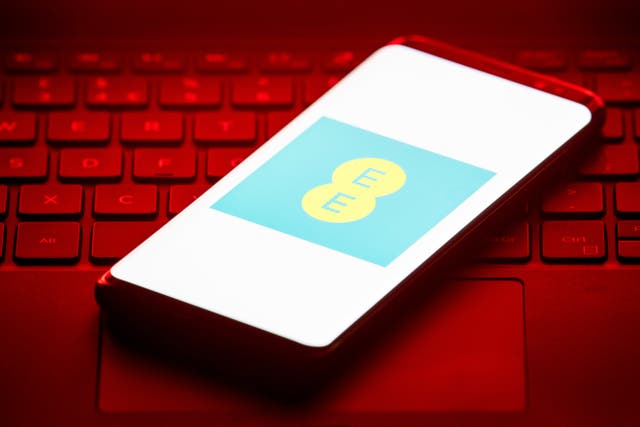
Shelagh Fogarty 1pm - 4pm
27 October 2020, 12:24

Mobile phone companies will no longer be allowed to ‘lock’ handsets to a specific network from December 2021.
A ban on mobile phone companies selling handsets “locked” to a network will make switching provider easier for consumers next year.
Here is everything you need to know about the rule changes:
– Why has this come about?
When buying a smartphone, some sellers “lock” the device to a specific network. This means that if you later decide to put a new SIM card into the phone from another provider, you will not be able to do things such as make calls, send texts or use data.
Consumers can choose to unlock the device, but it usually requires contacting the network provider or paying a shop to do it for you.

Industry regulator Ofcom – which is responsible for the rule change – says almost half of customers who try to unlock their device experience difficulties doing so, with more than a third of people put off attempting to switch.
– Why were providers locking smartphones to their networks?
According to BT – which also owns EE – locking new smartphones protects customers and makes it harder for criminals to commit fraud.
– So what do the changes mean?
It means you will be able to put a new SIM into your smartphone whenever you like.
For example, if your contract ends and you decide to keep using the smartphone but opt for a SIM-only deal with another provider, you can do so with ease.
Or if you pass your old handset on to another family member, they too can go with whichever network they like without the fuss of unlocking the device.
However, you will still need to request a PAC code if you want to transfer your mobile phone number to a different SIM and provider.
The changes also mean far shorter waiting times, as it can take a while for the process to be activated via your network provider.
– When will the rules come into effect?
The new rules will come in from December 2021.
Unlocking barriers to switching: we are banning phone companies from selling locked mobile handsets.
This is part of a range of measures we’re introducing to help make switching simpler and promote fairness for customers: https://t.co/mCNqTtchMA
— Ofcom (@Ofcom) October 27, 2020
– Which networks will this affect?
It will apply to all networks, although some firms already offer the devices they sell unlocked.
BT/EE, Vodafone and Tesco Mobile are among the names highlighted by Ofcom as still locking smartphones.
BT says it does not charge its customers to unlock their phones at the end of contracts and automatically unlocks handsets wherever possible.
“We’ll work with Ofcom to comply with its guidelines,” a spokesman for the firm said.
With Vodafone, it is free to request a network unlock code for most people – once a form has been completed and submitted, the company says it usually unlocks the device within 72 hours.
“We stand ready to implement these changes, when they come into force,” Vodafone said.
Meanwhile, Tesco Mobile responded: “We’ll work with Ofcom to implement these changes.”